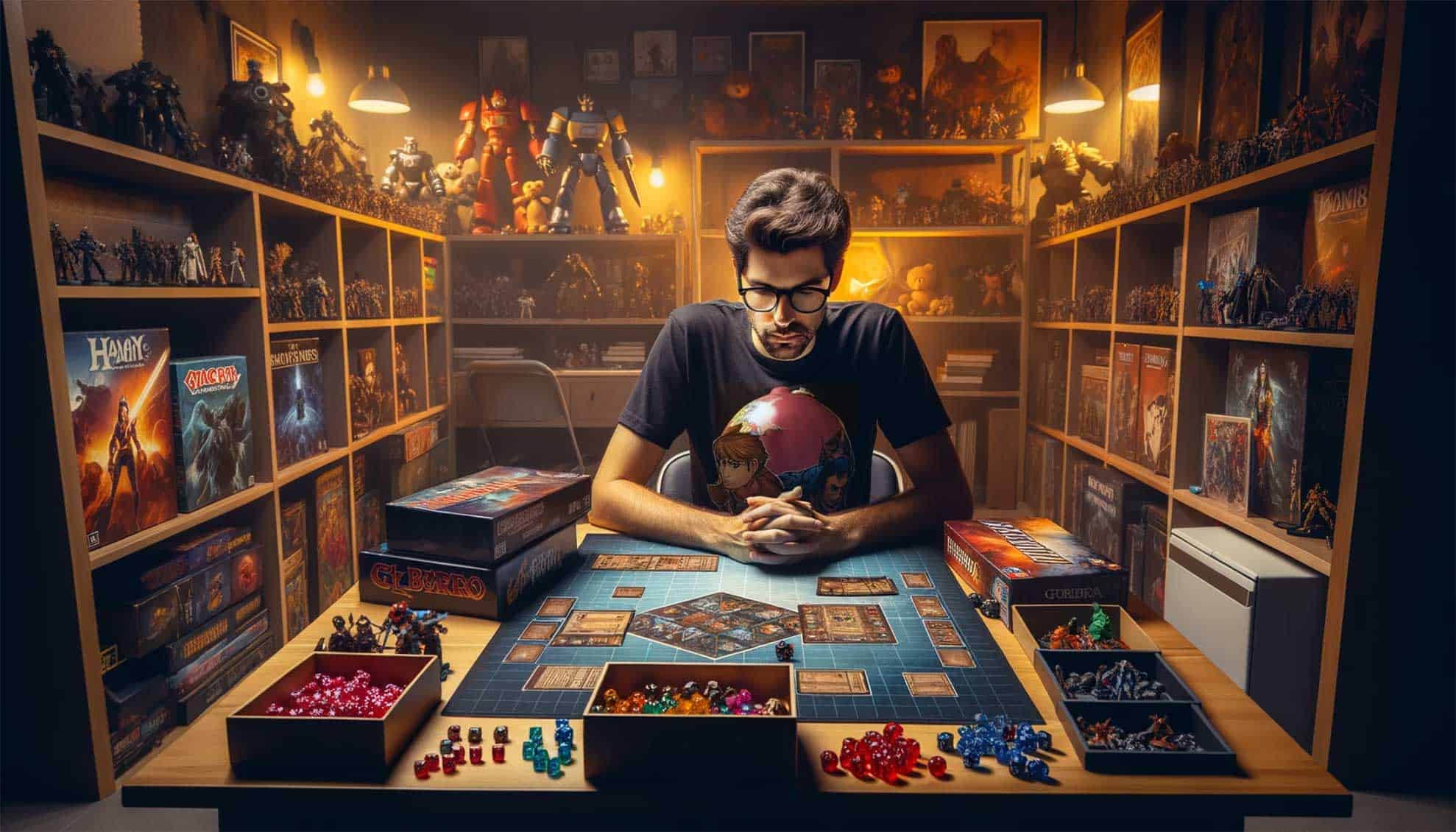From dimly lit basements to the dazzling stages of Twitch streams and YouTube channels, the rise of Dungeons & Dragons (D&D) is nothing short of a modern cultural marvel. Born in the 1970s as a pen-and-paper role-playing game, D&D was once the reserve of a dedicated few. It was a game often stereotyped as the domain of the socially awkward or the “nerdy” subculture, played behind closed doors and spoken about in hushed, sometimes derisive tones.
Yet, as the decades rolled on, this seemingly niche game began to carve an indelible mark on our societal consciousness. It transitioned from simple rulebooks to being a considerable influence on video games, literature, and even film. But perhaps more profound than its penetration into popular culture is the manner in which D&D has fostered communities, challenging preconceived notions about gaming, gamers, and the very nature of storytelling itself.
Today, not only has D&D shattered its once-confining mold, but it has also served as a beacon for those seeking camaraderie, creativity, and a sense of belonging. Popular celebrities, from actors to musicians, proudly declare their love for the game, further dismantling outdated stereotypes. In a world increasingly dominated by digital interactions, D&D’s resurgence underscores a deep-rooted human desire: the longing for collaborative storytelling, imagination, and shared experiences in communal settings.
As we stand on the precipice of a world where virtual and augmented realities will further blur the lines between fantasy and reality, D&D’s role is more critical than ever. It reminds us that at the heart of every technology, every game, and every innovation, lies a simple, unyielding truth: our innate craving for stories, connection, and a space to explore the boundless landscapes of our imagination.
D&D and Modern Entertainment:
There’s no denying that the realms of film, television, and video games have been touched—perhaps even shaped—by the magic of Dungeons & Dragons. What once began as a tabletop role-playing game has not only exploded in popularity but has influenced some of the most significant entertainment mediums of our generation.
Influence on Video Games:
D&D’s mechanics have found their way into countless video games, both overtly and subtly. The class-based systems, skill checks, and even the idea of leveling up have their roots in D&D. Role-playing games (RPGs), like the “Baldur’s Gate” series or “Neverwinter Nights”, directly draw from D&D’s rulebook, replicating its mechanics and even its rich lore. But even beyond the direct adaptations, many modern games incorporate D&D’s principles of choice-driven narratives, character development, and group dynamics. The moral dilemmas players face in games like “The Witcher” or “Dragon Age” mirror the complex decisions D&D players must make at the table.
Try my AI Tabletop RPG generators...and an extensive library of content!
D&D’s Footprint in Film and TV:
The world of cinema and television isn’t immune to D&D’s allure either. Shows like “Stranger Things” not only reference the game but use it as a narrative device, with the characters’ in-game decisions paralleling their real-world challenges. Beyond direct references, many movies adopt the classic D&D narrative arcs, showcasing bands of diverse individuals coming together on a quest, facing numerous challenges, and growing in the process. This can be seen in everything from “The Lord of the Rings” trilogy to ensemble films like “Guardians of the Galaxy”.
Celebrities and Public Figures:
The game’s influence has reached such heights that many well-known figures proudly declare their affinity for D&D. Actors like Vin Diesel and Joe Manganiello have spoken passionately about their love for the game, with the latter even showcasing his personal D&D dungeon. Meanwhile, shows like “Critical Role,” featuring voice actors playing D&D, have amassed massive followings, further cementing the game’s place in the entertainment zeitgeist. These celebrity endorsements and showcases do more than just promote D&D; they challenge outdated perceptions and demonstrate the game’s universal appeal.
In the final analysis, D&D’s tendrils in modern entertainment are extensive. Its narrative depth, character-driven stories, and mechanics offer a goldmine of inspiration that creators across mediums have eagerly tapped into. As the lines between these mediums continue to blur—thanks to interactive films, VR experiences, and more—D&D’s influence is poised to grow, further highlighting its transformative power in the world of entertainment.
Education and Critical Thinking:
The echoing clang of dice on a table, the rustling of character sheets, and the collaborative weaving of narratives: these are not the typical sounds of a classroom. Yet, Dungeons & Dragons (D&D) is proving that it has a place alongside traditional educational tools. Beneath its layers of fantasy and imagination lies a robust framework that can be harnessed to enhance learning, critical thinking, and essential life skills.
⚔️ Fantasy RPG Random Tables Books
Make life as a Gamemaster easier…
If you play Dungeons & Dragons, Pathfinder, or other fantasy RPGs, this
RPG random tables series
is packed with encounters, NPCs, treasure, and more. Available in eBook or print—either way, you’ll have a wealth of adventure ideas at your fingertips.
D&D in Educational Settings:
Educators across the globe are recognizing the potential of D&D as a pedagogical tool. Its gameplay mechanics naturally promote problem-solving. When faced with challenges, whether it’s a menacing dragon or a treacherous puzzle, players must think critically, plan ahead, and strategize. But beyond individual thinking, D&D fosters teamwork and collaboration. Each player character (PC) often brings a unique set of skills to the table, emphasizing the importance of cooperative play and the idea that diverse groups can achieve more than individuals alone. Furthermore, the game’s open-ended nature can bolster creativity, as both Dungeon Masters (DMs) and players craft intricate stories, devise solutions, and role-play complex characters.
Development of Critical Skills:
At its core, D&D is a game of decisions. Every choice, from character creation to combat strategy, requires thought, foresight, and consideration of potential outcomes. This continuous decision-making nurtures critical thinking skills. Players learn to evaluate situations from multiple angles, predict consequences, and adapt to ever-changing scenarios.
Moreover, the game is ripe with opportunities for negotiation. Whether bartering with a merchant, forging alliances, or resolving conflicts within the party, players hone their negotiation skills, learning the art of compromise, persuasion, and diplomacy. This not only aids in achieving in-game objectives but also reinforces the importance of effective communication and understanding different viewpoints.
Additionally, D&D often presents moral and ethical dilemmas. Players might need to decide between two seemingly right choices or navigate the gray areas of morality, pushing them to reflect upon their own values, biases, and ethical beliefs. Such scenarios can lead to profound discussions, making players more introspective and aware of broader societal issues.
While D&D might be branded as entertainment, its educational potential is vast. It offers a dynamic, engaging platform that not only supplements traditional learning but also introduces students to a myriad of essential skills in a fun, interactive manner. As education continues to evolve and adapt to the needs of the 21st century, innovative tools like D&D showcase that learning can, and should, extend beyond textbooks and lectures, tapping into the rich reservoirs of imagination, collaboration, and critical analysis.

The Future of DND 6e and Beyond
Dungeons & Dragons, with its humble origins, has traversed a remarkable journey, from the fringes of pop culture to its heart. It’s more than just a game; it’s a phenomenon, a mirror reflecting the intricate tapestry of human emotions, desires, and aspirations. Its enduring legacy is a testament to the timeless allure of storytelling, of heroes and villains, of challenges faced and overcome.
D&D’s impact on society extends beyond mere entertainment. It has breathed life into modern cinema, shaped the mechanics of contemporary video games, and ventured into classrooms, reshaping pedagogical approaches. But its true magic lies in its ability to foster connections — connections between players, between narratives, and between fantasy and reality. It serves as a bridge, allowing individuals from diverse backgrounds to come together, share experiences, and create collective memories.
As we stand at the crossroads of technological advancements, with virtual realities and artificial intelligences becoming more intertwined with our daily lives, the importance of human-centric experiences like D&D cannot be overstated. The game offers a refuge, a space where imagination is unrestrained, where characters evolve, and where every decision matters. It reminds us of the power of shared stories and the profound impact they can have on shaping our perceptions, values, and, ultimately, our world.
The dice may be packed away at the end of a session, the character sheets stored, but the ripples of D&D continue to spread, touching lives in myriad ways. Its legacy is not just in the adventures crafted or the dragons slain, but in the lessons learned, the friendships forged, and the societal norms challenged. As we look to the future, the world of Dungeons & Dragons promises not only continued growth but also endless opportunities for exploration, reflection, and transformation. It is, and will remain, a beacon of creativity, collaboration, and community in an ever-evolving societal landscape.










